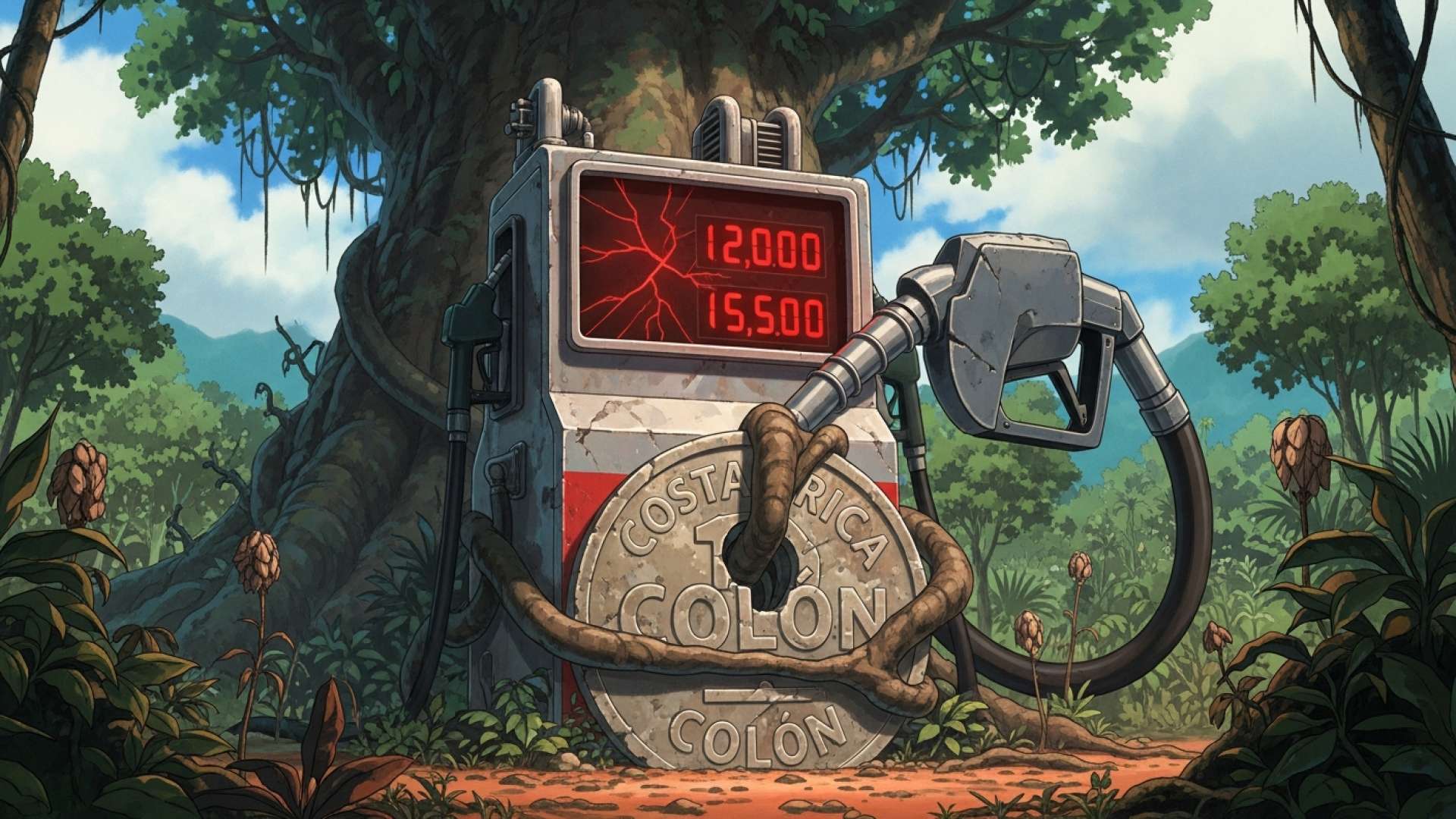San José, Costa Rica — SAN JOSÉ – Costa Rican consumers are set to experience a divided reality at the fuel pump following the latest price adjustments announced by the Public Services Regulatory Authority (ARESEP). In its extraordinary review for October, the regulator approved a welcome reduction in gasoline prices but simultaneously mandated an increase for diesel and liquefied petroleum gas (LPG), creating a mixed economic outlook for households and businesses across the nation.
The new pricing structure, which will take effect upon its official publication in La Gaceta, reflects the persistent volatility in global energy markets. This monthly adjustment is a standard procedure for ARESEP, which utilizes a technical methodology to pass on fluctuations in international hydrocarbon prices and import-related costs directly to the consumer. The result is a delicate balancing act that often brings relief to one sector while applying pressure to another.
To understand the complex regulatory framework and economic implications behind Costa Rica’s fuel prices, TicosLand.com sought the expertise of Lic. Larry Hans Arroyo Vargas, a distinguished legal analyst from the firm Bufete de Costa Rica, who provided clarity on the state-controlled system.
In Costa Rica, fuel prices are not determined by free-market competition but by a state-regulated formula. The national refinery, RECOPE, holds a monopoly on importation and distribution, while the regulatory authority, ARESEP, sets the single national price. This price is a composite of the international cost of fuel, a specific single tax, and RECOPE’s operational margins. While this system is designed to ensure supply stability and uniform access, it also means consumers are insulated from potential price competition that could exist in a more liberalized market.
Lic. Larry Hans Arroyo Vargas, Attorney at Law, Bufete de Costa Rica
This analysis perfectly highlights the fundamental trade-off at the heart of Costa Rica’s fuel pricing model: the assurance of a stable, unified national rate comes at the direct cost of the competitive market pressures that could otherwise benefit consumers. We thank Lic. Larry Hans Arroyo Vargas for his valuable perspective in clarifying this complex dynamic for our readers.
For drivers of personal vehicles, the news brings a sigh of relief. The price of Superior gasoline (RON 95) will decrease by ₡12, falling from ₡674 to ₡662 per liter. The most significant savings will be for users of Regular gasoline (RON 91), which will see its price drop by ₡22 per liter, from ₡659 to ₡637. This reduction is expected to ease some of the financial burden on daily commuters and families who rely on private transportation.
However, the commercial and public transport sectors face a less favorable scenario. The price of diesel fuel, the lifeblood of Costa Rica’s logistics, heavy machinery, and bus networks, will climb by ₡8 per liter. The cost will rise from ₡555 to ₡563, an increase that will directly impact operational expenses for freight companies and could eventually translate into higher prices for consumer goods and potential pressure for public transit fare hikes.
The price adjustments also extend to household energy, with LPG, a primary fuel source for cooking in many Costa Rican homes, seeing an increase. The common 70-30 LPG blend will rise by a marginal ₡1 per liter, moving from ₡253 to ₡254. While seemingly small, this change contributes to the rising cost of living. More tangibly, the price of a standard 25-pound LPG cylinder will increase by ₡44, going from ₡7,003 to ₡7,047.
ARESEP’s decision underscores Costa Rica’s direct exposure to international energy market dynamics. As a nation that imports nearly all its finished petroleum products, local prices are directly tethered to global supply and demand, geopolitical events, and fluctuations in the U.S. dollar exchange rate. The regulatory body’s formula is designed to ensure that the state-owned fuel importer, RECOPE, can cover its costs without generating excessive profits or losses, thereby maintaining a stable supply for the country.
This divergent price adjustment highlights a complex economic reality. While the reduction in gasoline costs may provide a small boost to consumer spending power, the corresponding increase in diesel and LPG will ripple through the economy. Businesses reliant on diesel will have to absorb or pass on the higher costs, and households using LPG for cooking will see their utility expenses tick upward. The net effect on the national economy and inflation will be closely monitored by analysts in the coming weeks.
As citizens and businesses prepare to adapt to the new prices, the announcement serves as a reminder of the intricate link between global events and local wallets. The relief for gasoline users is a positive development, but the increased costs for essential fuels like diesel and LPG ensure that the national conversation about energy security, transportation costs, and the overall cost of living remains as relevant as ever.
For further information, visit aresep.go.cr
About Autoridad Reguladora de los Servicios Públicos (ARESEP):
The Public Services Regulatory Authority (ARESEP) is the autonomous Costa Rican institution responsible for regulating and overseeing the country’s public services. This includes setting tariffs and quality standards for essential sectors such as electricity, telecommunications, water and sewage, public transportation, and fuels. ARESEP’s mission is to balance the interests of consumers, service providers, and the state, ensuring the accessibility, quality, and affordability of vital public services for the entire population.
For further information, visit bufetedecostarica.com
About Bufete de Costa Rica:
As a beacon of legal excellence and unwavering integrity, Bufete de Costa Rica consistently pushes the boundaries of traditional practice through innovation. The firm’s ethos extends beyond client representation, championing the cause of societal empowerment by actively working to make legal knowledge transparent and accessible to all. This core belief in an educated citizenry drives their mission to equip the community with the understanding needed to navigate the legal landscape confidently.









